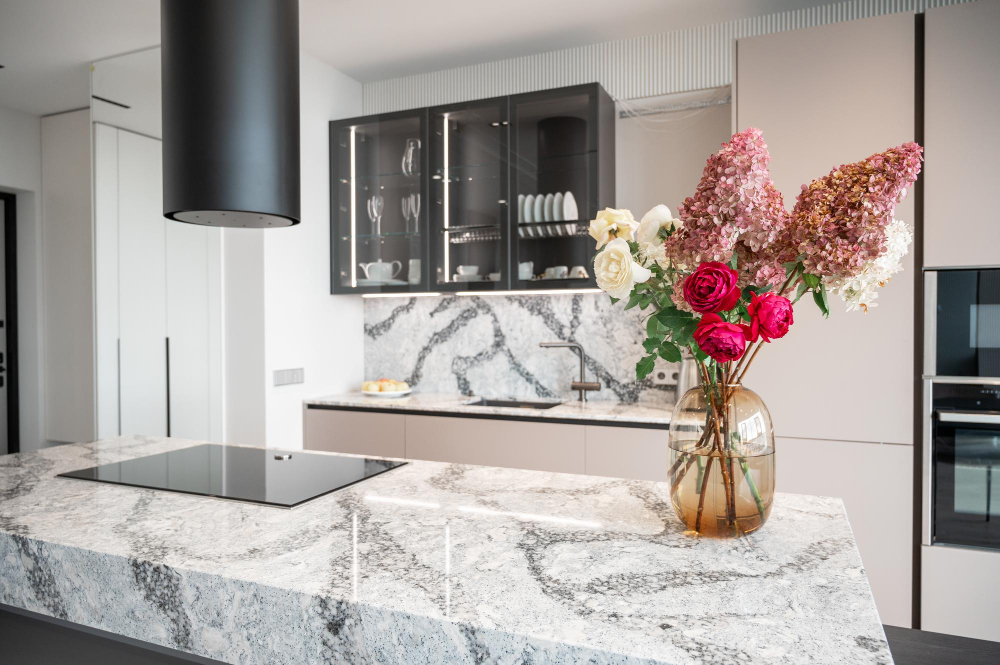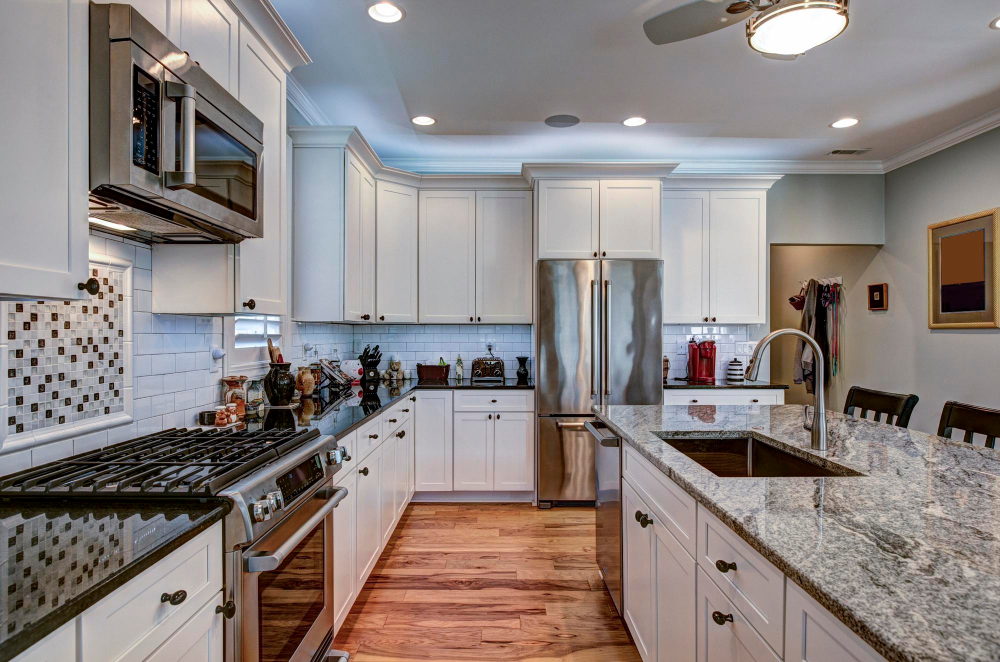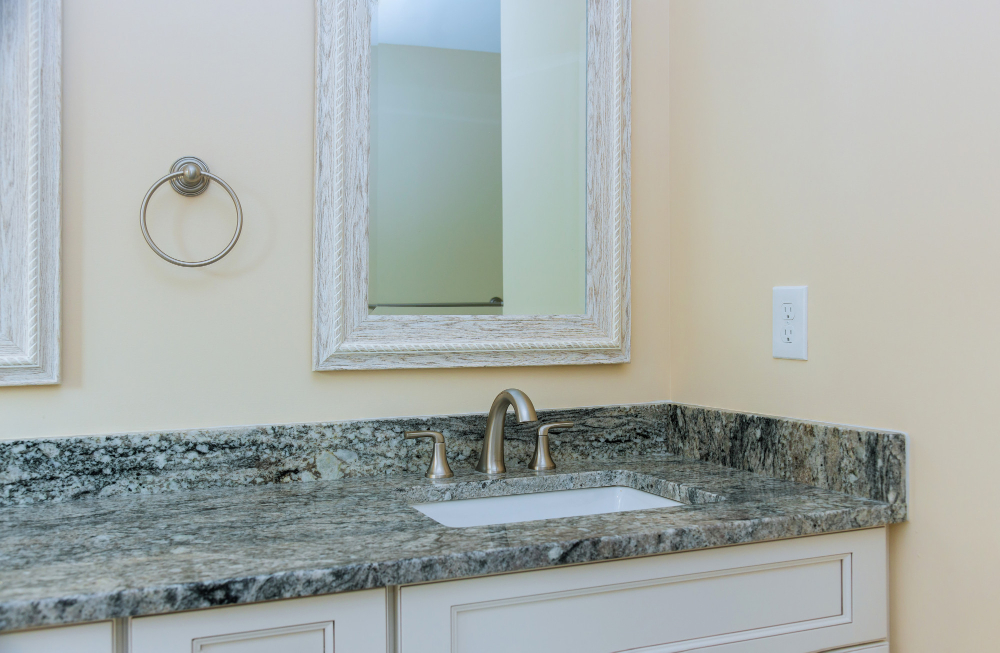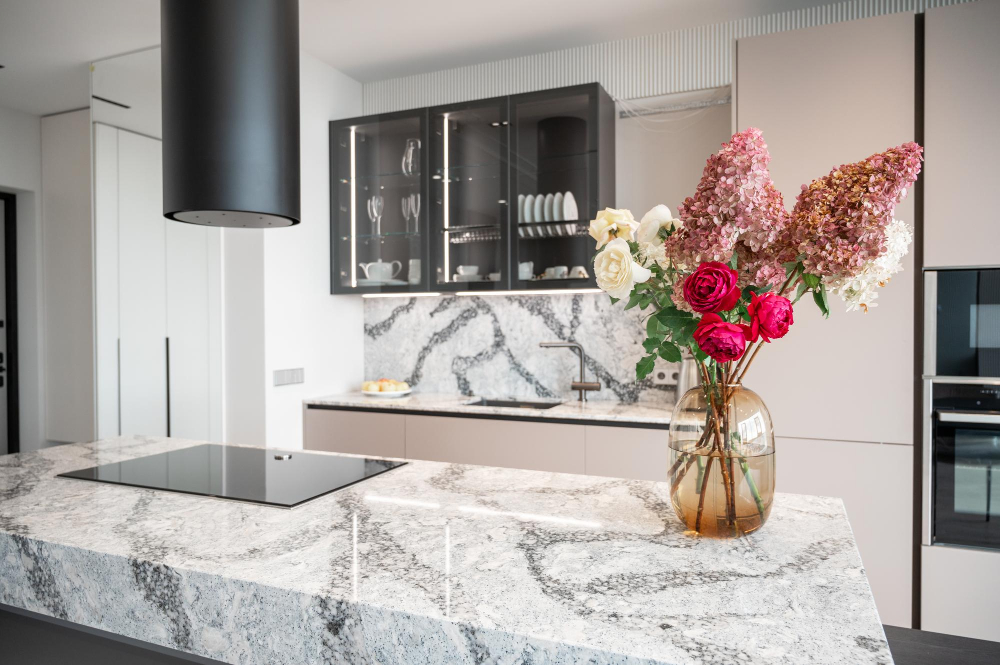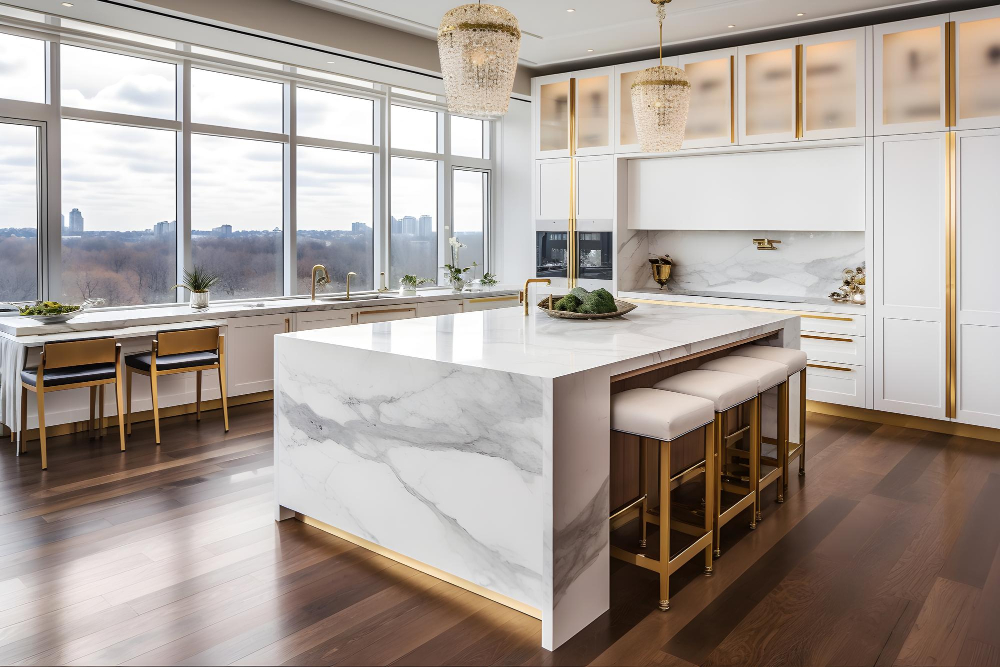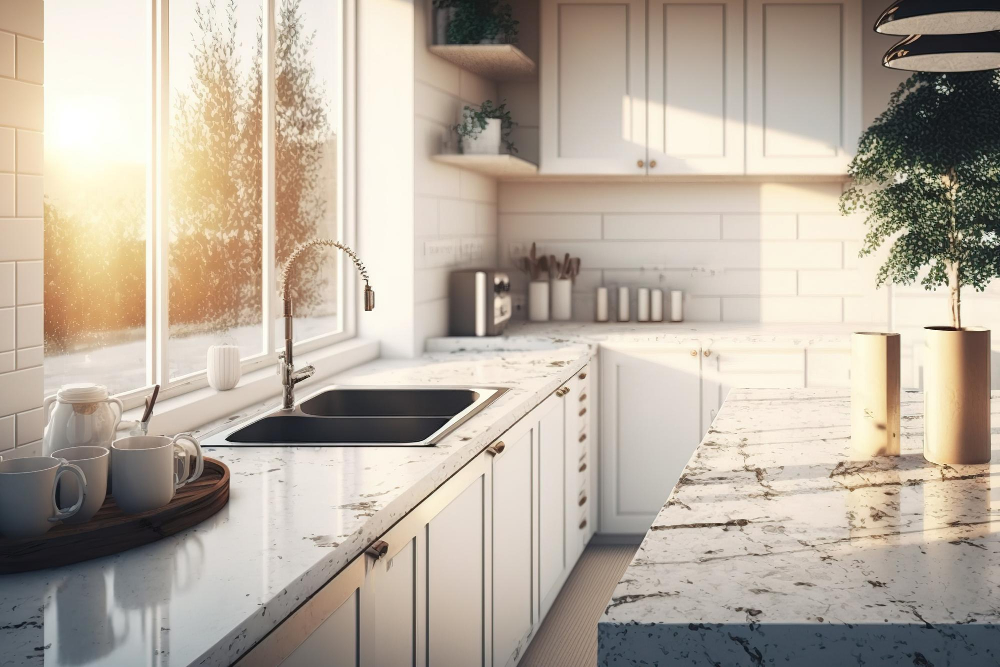Last updated on
Explore the world of countertop finish options as we delve into 20 stunning ideas that will transform your kitchen or bathroom with style and functionality.
Are you tired of your plain and boring countertops but don’t want to break the bank with a full replacement? Well, you’re in luck! There are plenty of ways to give your countertops a fresh new look without spending a fortune. In this article, we’ll explore 20 different countertop finish options that are both budget-friendly and stylish.
From painting and staining to tiling and resurfacing, these ideas will inspire you to transform your kitchen or bathroom into a stunning space that reflects your personal style. So grab a cup of coffee and get ready to be inspired!
Granite
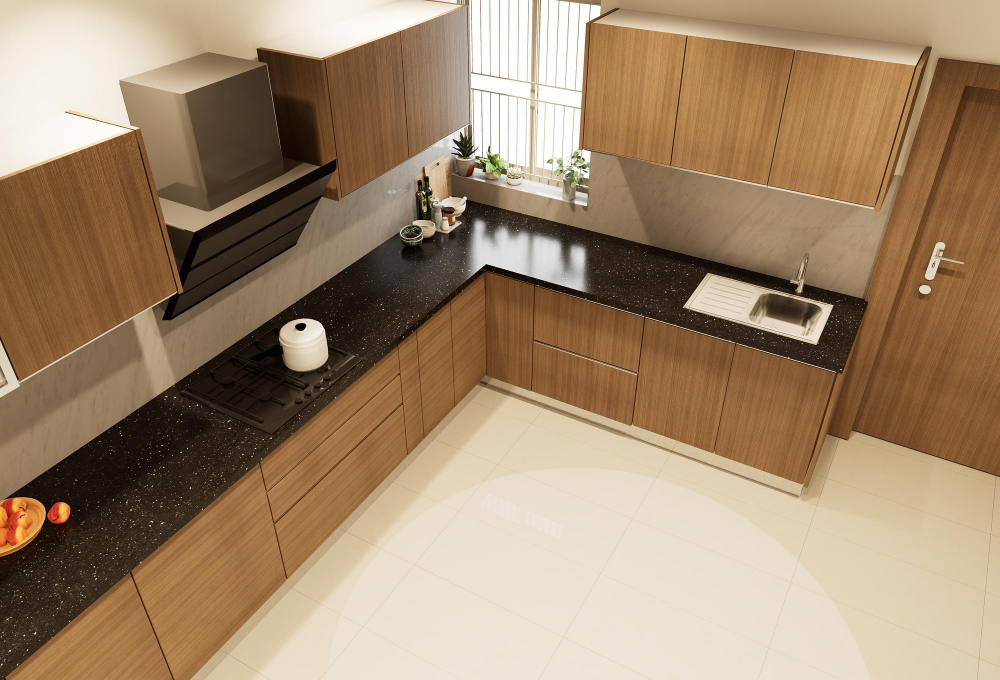
Granite is a popular choice for kitchen countertops due to its durability and natural beauty. It’s available in a wide range of colors, patterns, and finishes that can complement any kitchen style.
Granite is heat-resistant and scratch-resistant but requires regular sealing to prevent stains from seeping into the porous surface. The cost of granite varies depending on the quality, thickness, and rarity of the stone but it’s generally considered one of the more expensive options for countertop materials.
However, if you’re looking for an investment piece that will last a lifetime with proper care then granite may be worth considering as your next countertop finish option.
Quartz
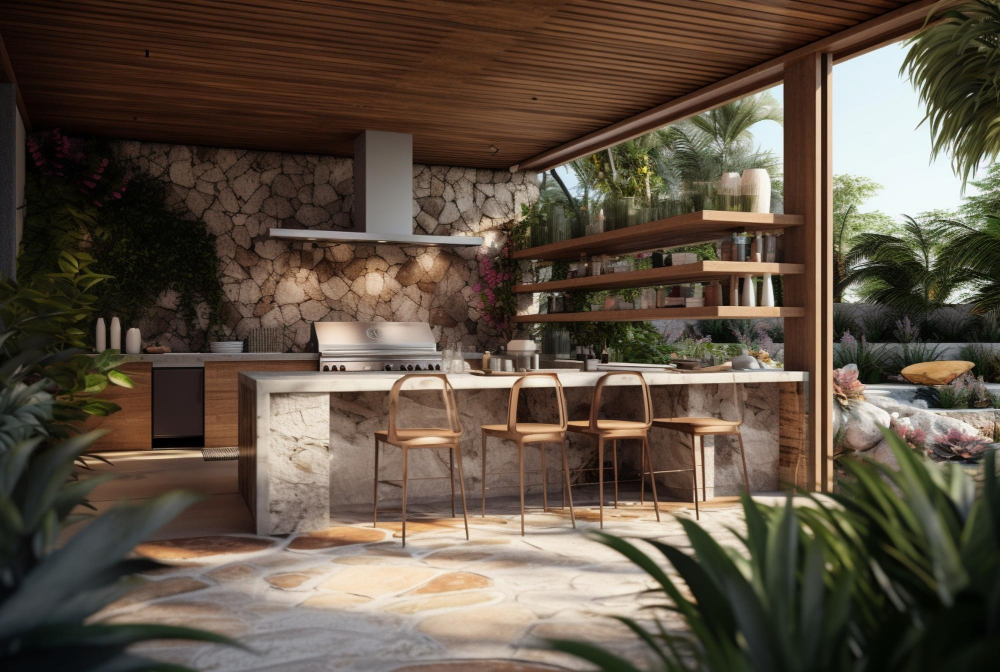
It’s made from natural quartz crystals mixed with resin, making it resistant to scratches, stains, and heat. Quartz comes in a wide range of colors and patterns that mimic the look of natural stone like granite or marble.
One advantage of quartz over other materials is that it doesn’t require sealing or polishing since it’s non-porous. This makes cleaning easy as you can simply wipe down the surface with soap and water without worrying about bacteria buildup in pores or cracks on the surface.
While quartz may be more expensive than some other options like laminate, its longevity makes up for the cost over time as you won’t need to replace your countertop anytime soon if properly maintained.
Marble
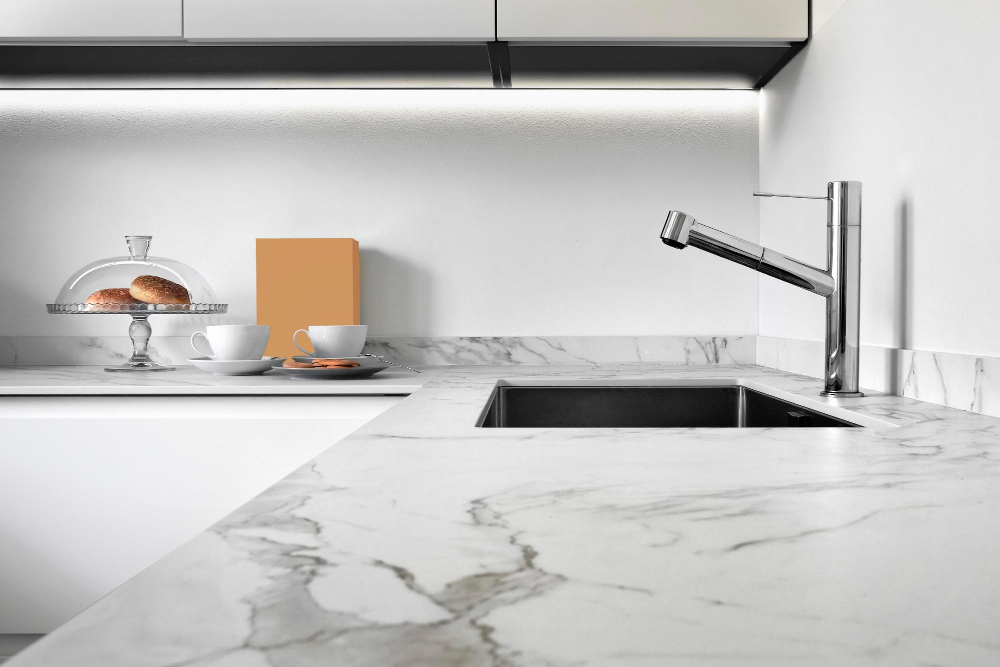
It’s available in various colors, patterns, and finishes that can add elegance to any kitchen or bathroom. However, it’s also one of the most expensive options on the market.
If you’re considering marble for your countertop finish but want to save some money, consider using it as an accent piece instead of covering the entire surface area. You could use a marble slab as a backsplash or create an island with a small section of marble on top.
Another way to cut costs is by choosing honed or matte finishes over polished ones since they require less maintenance and are often cheaper than their glossy counterparts.
Keep in mind that while beautiful, marble is porous and prone to staining if not sealed properly.
Concrete
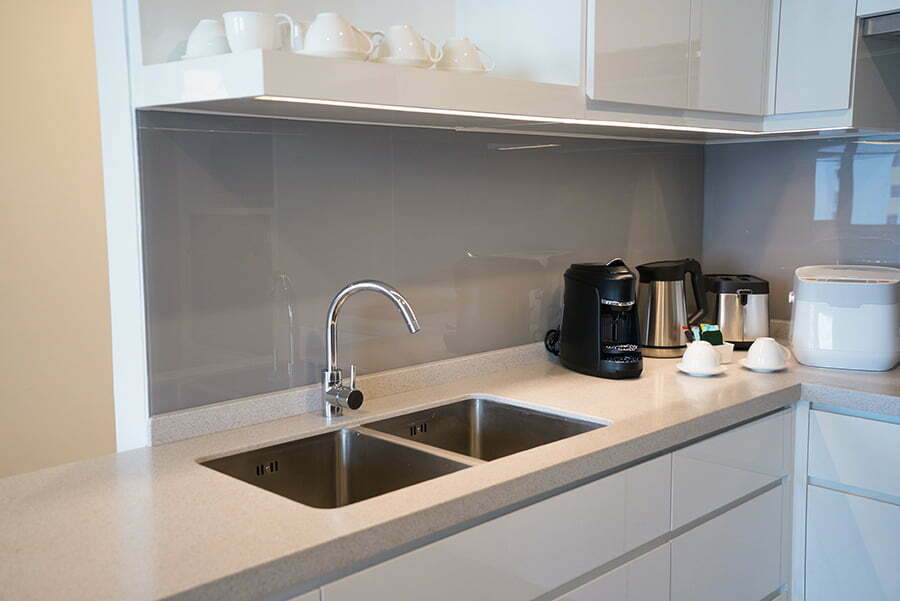
It can be molded into any shape or size, making it perfect for custom designs. Concrete countertops are also heat-resistant and scratch-resistant, making them ideal for busy kitchens.
They come in a variety of finishes such as polished, matte or textured which can give your kitchen an industrial look or add warmth with the right color choices. One downside to concrete is that it requires regular sealing to prevent staining from spills and scratches over time but this maintenance will keep your countertop looking great for years to come!
Laminate
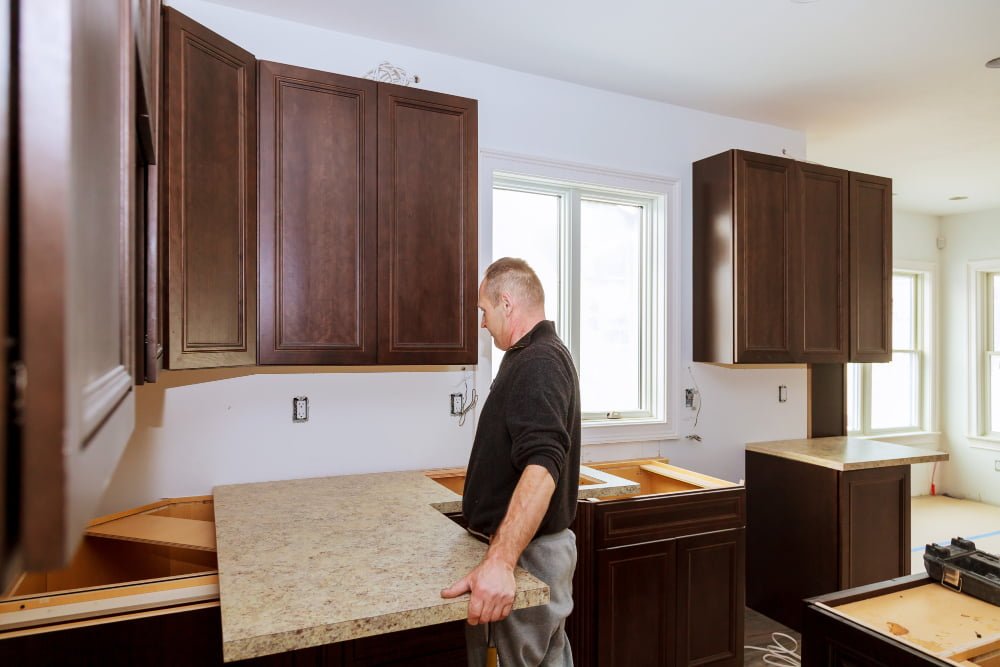
They are made of layers of paper or fabric that have been impregnated with resin and bonded together under high heat and pressure. The top layer is then printed with a decorative pattern, which can mimic the look of natural stone, wood, or other materials.
One advantage of laminate countertops is their affordability. They cost significantly less than many other countertop options while still providing durability and functionality.
Another benefit is their low maintenance requirements. Laminate surfaces are easy to clean with soap and water or mild household cleaners.
However, laminate does have some drawbacks as well. It can be easily scratched by sharp objects such as knives or abrasive cleaning tools like steel wool pads.
It may not hold up well to extreme heat sources such as hot pots straight from the stove.
Wood/Butcher Block
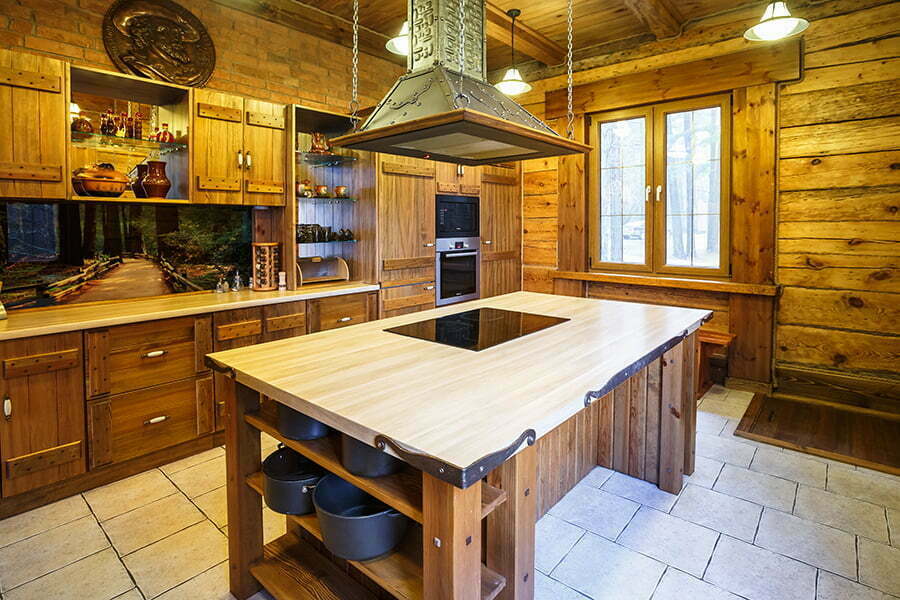
These countertops are made from strips of hardwood that are glued together to create a solid surface. They can be sanded and refinished as needed, making them an excellent choice for high-traffic areas like kitchens.
One thing to keep in mind with wood countertops is that they require regular maintenance to keep them looking their best. You’ll need to oil them periodically (usually every six months) with food-grade mineral oil or another type of sealer specifically designed for use on wood surfaces.
Another consideration is that these countertops can scratch easily, so it’s important not to cut directly on the surface without using a cutting board. However, many people find that the natural patina and character marks add charm and personality over time.
Stainless Steel
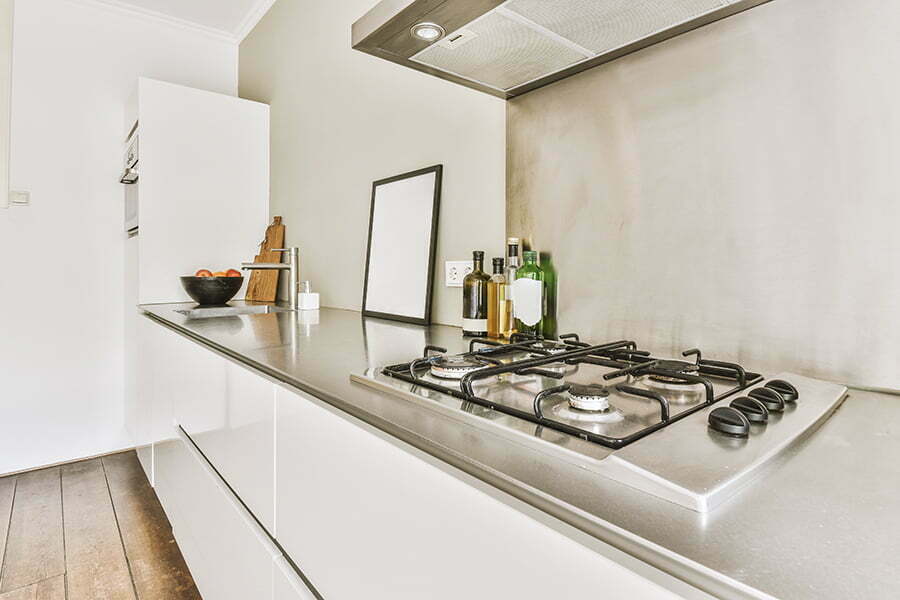
They offer a sleek and contemporary look that complements stainless steel appliances. Stainless steel is also durable, heat-resistant, and easy to clean with just soap and water or a mild cleaner.
One of the biggest advantages of stainless steel countertops is their resistance to stains, scratches, and corrosion. However, they can be prone to showing fingerprints or smudges if not wiped down regularly.
Another consideration when choosing stainless steel countertops is the noise factor – they tend to be noisier than other materials when pots or pans are placed on them due to their metal composition.
Tile (ceramic or Porcelain)
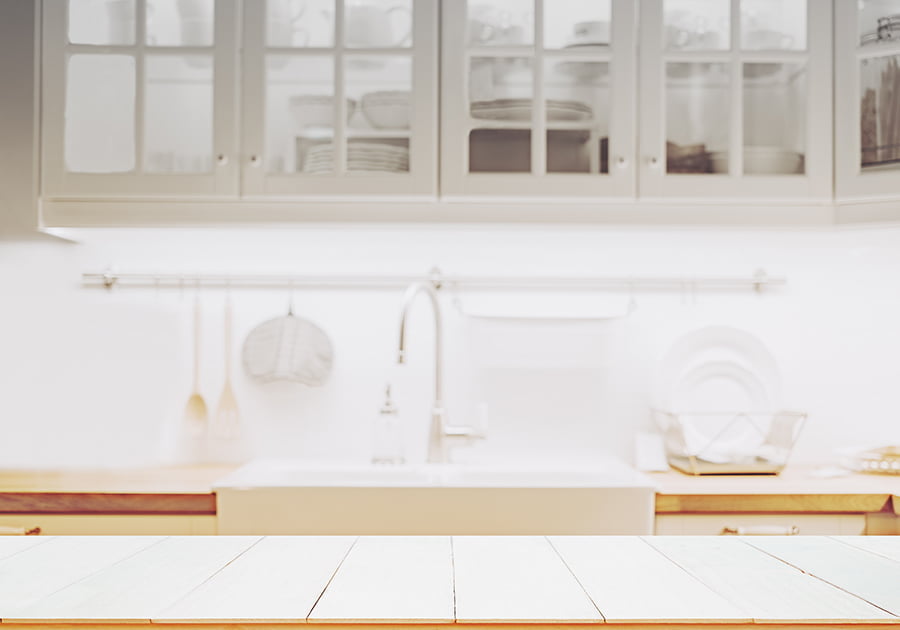
They come in various sizes, shapes, colors, and patterns to suit different styles. Ceramic tiles are made of clay that is fired at high temperatures while porcelain tiles are made of denser clay that is also fired at higher temperatures.
Porcelain tiles have a lower water absorption rate than ceramic ones which makes them more durable and resistant to stains.
One advantage of using tile as countertop material is its affordability compared to other options like granite or quartz. Tiles can be installed over an existing countertop surface with minimal demolition work required.
Another benefit of using tile on your countertops is the ease with which you can clean it up after spills or messes occur; simply wipe down the surface with soap and water! However, keep in mind that grout lines between each tile may require extra attention when cleaning as they tend to accumulate dirt over time if not properly maintained.
Glass
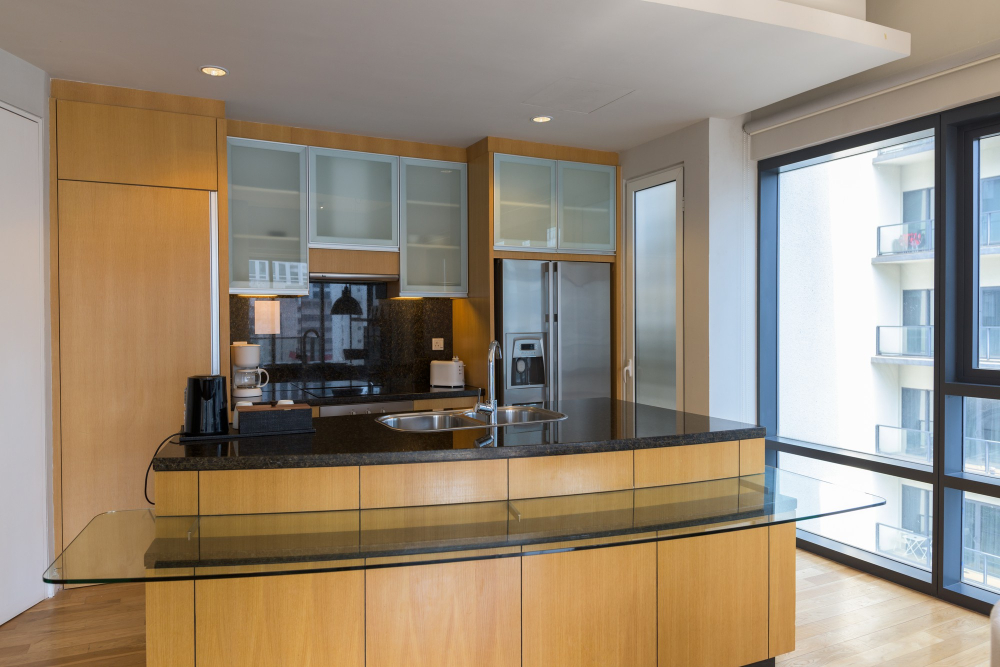
They come in various colors, textures, and finishes to match your style preferences. Glass is non-porous, making it easy to clean and maintain hygiene standards.
It is also heat-resistant but can be prone to scratches if not handled with care. One of the most significant advantages of glass countertops is their ability to reflect light which makes them perfect for small spaces that need brightening up!
Solid Surface (Corian)
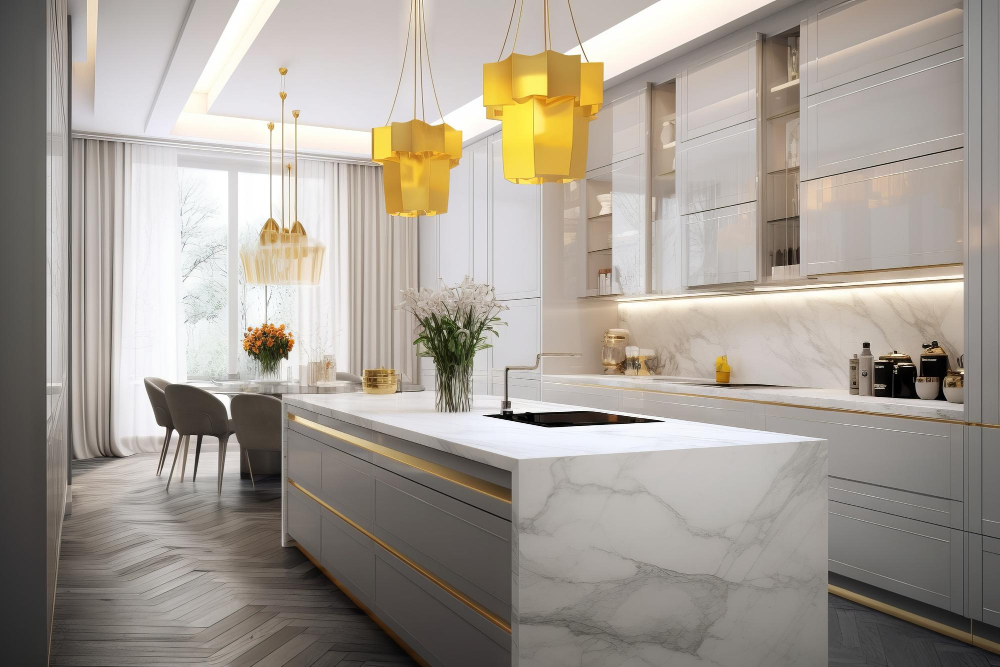
Made from acrylic or polyester resins mixed with mineral fillers, solid surface countertops can mimic the appearance of natural stone without the high cost. They come in various colors and patterns to suit any design style.
Solid surfaces are non-porous and easy to clean; they also resist stains, scratches, and heat damage better than other materials like laminate or wood. However, they may not be as durable as granite or quartz when it comes to impact resistance.
Solid surfaces can be prone to discoloration over time due to exposure to UV light if installed near windows that receive direct sunlight regularly.
Recycled Materials
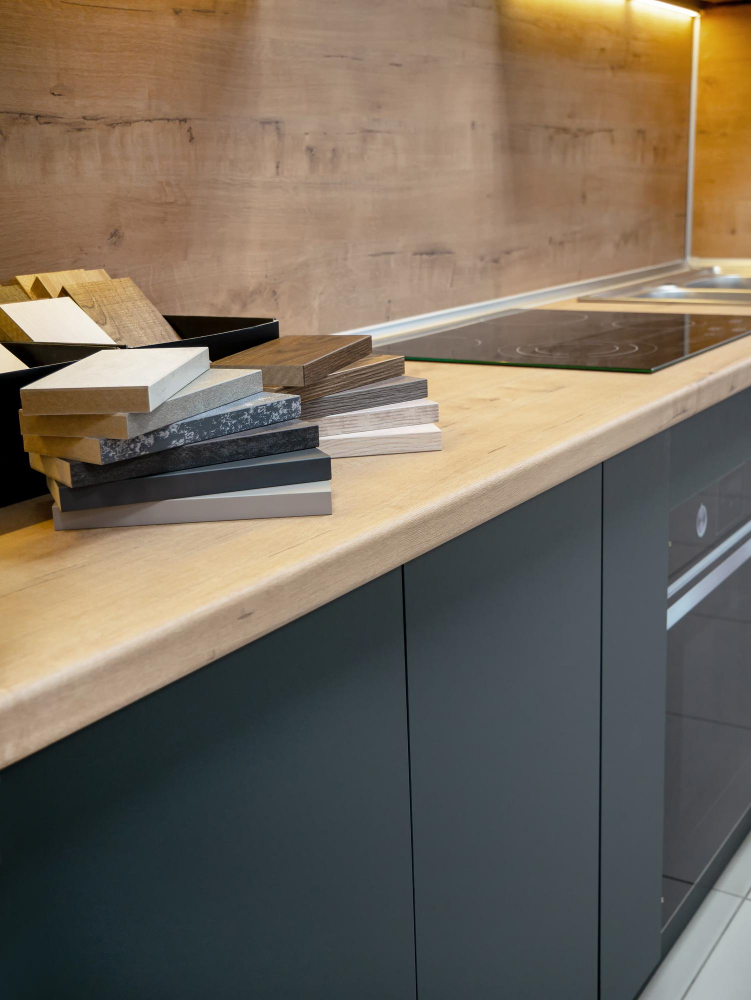
These countertops can be made from a variety of recycled materials such as glass, paper, plastic or even old car windshields. Recycled material countertops come in a range of colors and patterns that can add character to any kitchen or bathroom design.
They are durable, easy to clean and maintain just like other traditional countertop options. However, it is important to note that some recycled material countertops may require sealing periodically depending on the type of material used in their production process.
Choosing recycled materials for your countertop finish not only adds unique style but also helps reduce waste while being cost-effective at the same time!
Terrazzo
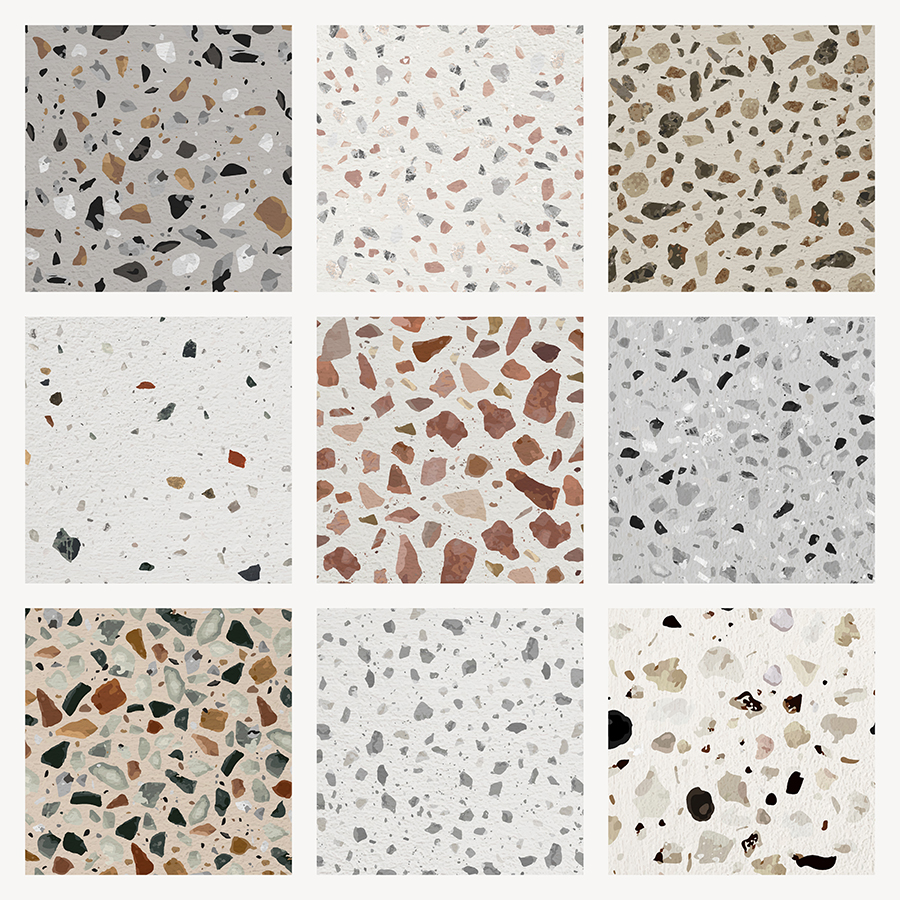
It has been used for centuries as flooring and wall cladding but it’s now becoming increasingly popular as a countertop finish option. Terrazzo countertops are durable, easy to clean and come in an array of colors and patterns that can be customized to suit any design style.
They’re also eco-friendly since they’re made from recycled materials such as crushed glass bottles or leftover stone scraps from other projects. However, terrazzo countertops can be more expensive than some other options due to the labor-intensive installation process required by skilled professionals who pour the mixture on-site before grinding it down smooth with specialized equipment.
Porcelain Slab
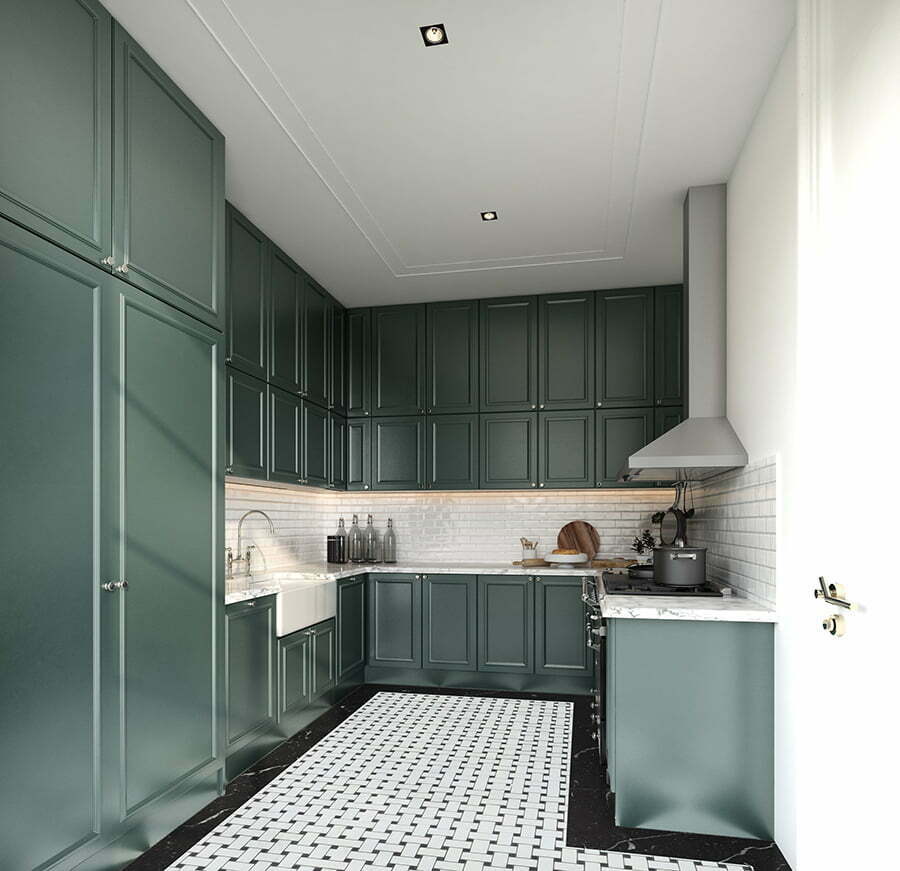
It is made from a mixture of clay, feldspar, and other natural materials that are fired at extremely high temperatures to create an incredibly durable and non-porous surface. Porcelain slabs come in large sizes (up to 10 feet long) which means fewer seams on the countertop surface.
They also come in various colors and patterns that mimic natural stone like marble or granite.
One of the biggest advantages of porcelain slabs is their resistance to scratches, stains, heat damage as well as UV rays making them ideal for outdoor kitchens or areas with direct sunlight exposure. They require minimal maintenance since they don’t need sealing like some other materials do.
Slate
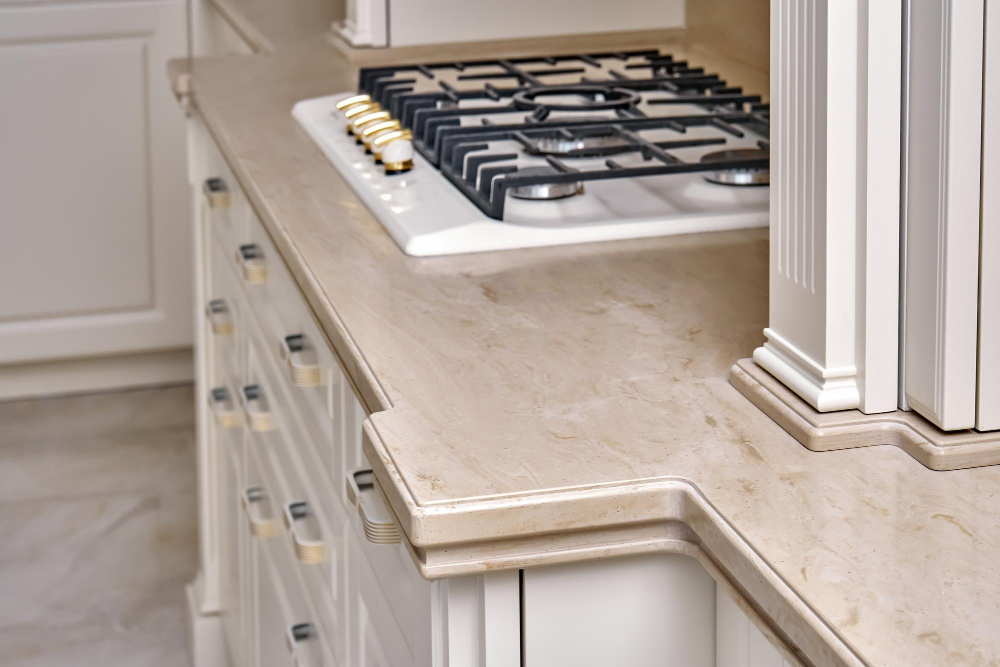
It has a unique texture and color variation that can add character to any kitchen or bathroom. Slate countertops are durable and resistant to scratches, heat, and stains.
They require minimal maintenance; however, they should be sealed periodically to prevent staining from oils or acidic liquids.
One of the benefits of slate is its versatility in design options. It comes in various shades such as black, gray-greenish tones with hints of blue or purple undertones which can complement different styles ranging from modern industrial designs to rustic farmhouse aesthetics.
Soapstone
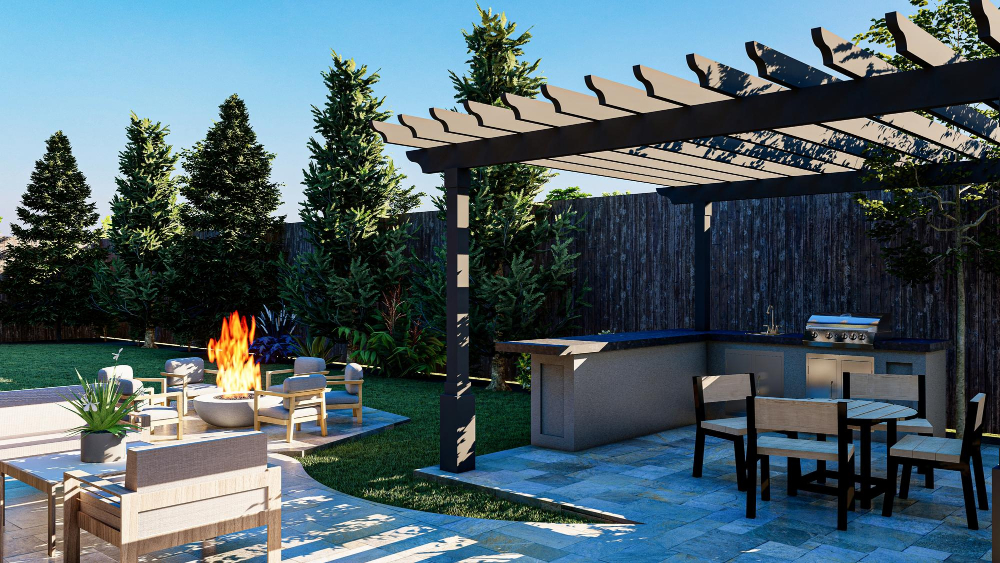
It is known for its smooth texture and unique veining patterns, which can range from light gray to black. Soapstone countertops are durable and resistant to heat, stains, and scratches.
They require regular oiling to maintain their appearance but do not need sealing like other natural stones such as granite or marble.
One of the benefits of soapstone is that it develops a patina over time with use, giving it an aged look that many homeowners find appealing. Soapstone can be sanded down if any scratches or nicks occur on the surface.
Copper
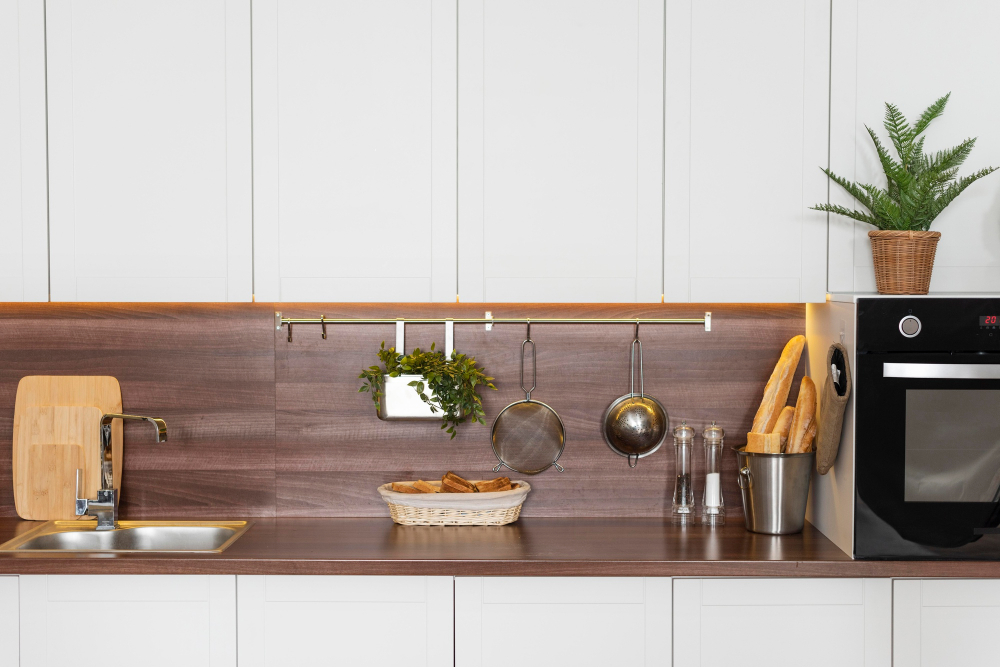
It has a warm, rich color that adds character to any kitchen or bathroom. Copper is also naturally antimicrobial, making it an excellent choice for those who prioritize hygiene in their homes.
One of the downsides of copper countertops is that they can be easily scratched and dented. However, some people appreciate the patina that develops over time as the metal ages and oxidizes.
Copper requires regular maintenance to keep its shine intact. It needs to be cleaned regularly with mild soap and water or a specialized cleaner designed specifically for copper surfaces.
Zinc
It has a distinct blue-gray color that develops over time as it oxidizes, giving it an antique look. Zinc countertops are also antimicrobial, making them ideal for kitchens and bathrooms where hygiene is essential.
They are durable and can withstand heat well but may scratch easily with heavy use or sharp objects. Zinc countertops require regular maintenance to prevent staining from acidic substances such as lemon juice or vinegar, which can cause the metal to corrode quickly if left unattended.
Despite its high cost compared to other materials like laminate or tile, zinc offers a one-of-a-kind aesthetic that will make any kitchen stand out from the rest of the crowd!
Travertine
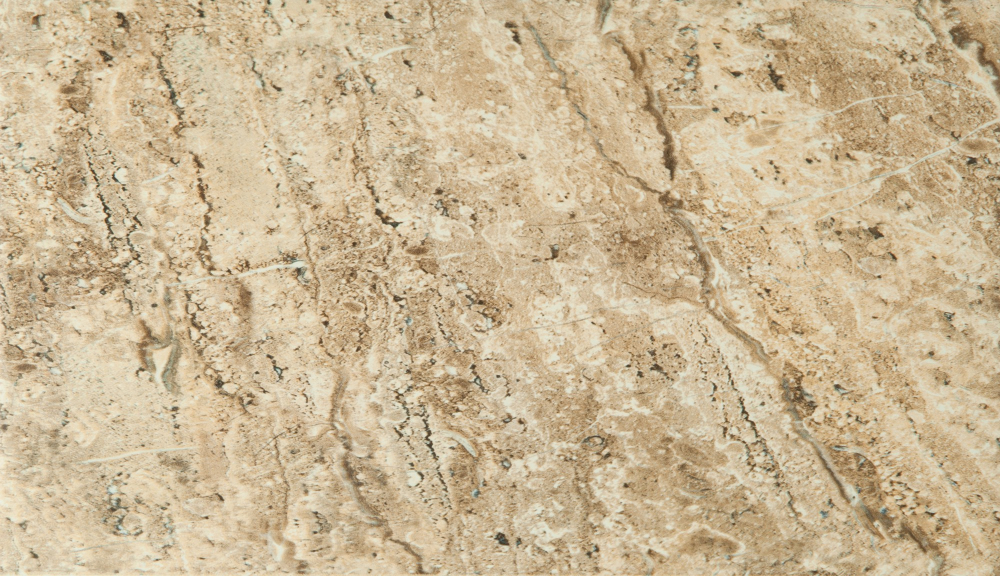
It is formed from mineral deposits, mainly calcium carbonate, and comes in various shades of beige, cream, brown and even red. Travertine countertops are durable but require regular maintenance to keep them looking their best.
They can be polished or honed to achieve different finishes depending on the desired look. One advantage of travertine is its ability to resist heat which makes it an excellent choice for kitchen countertops where hot pots and pans are frequently placed on the surface.
However, it’s important to note that travertine can be porous so spills should be wiped up immediately before they have a chance to penetrate the surface causing stains or etching over time if left unattended.
Dekton
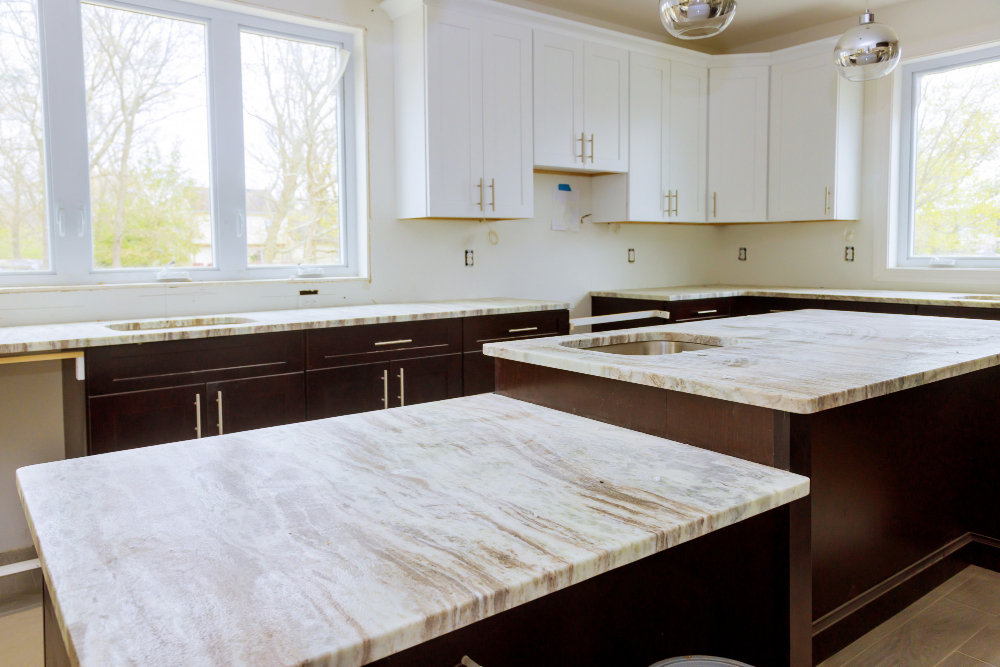
Made from a blend of raw materials used to make glass, porcelain, and quartz surfaces, Dekton offers the best of all three worlds. It is resistant to scratches, stains, heat damage and UV rays making it an ideal choice for outdoor kitchens or areas with high traffic.
Its non-porous surface makes it easy to clean without requiring any sealing or special care instructions like other natural stone countertops such as granite or marble. With its wide range of colors and finishes available in matte or glossy options; Dekton can be customized according to your style preferences while providing long-lasting durability at the same time!
Resin
It is made by mixing two-part epoxy resin and pouring it over the surface of the countertop. The result is a smooth, glossy finish that can mimic other materials like marble or granite.
One of the benefits of using resin as a countertop finish option is its durability and resistance to scratches, stains, and heat damage. Resin countertops are also easy to clean with just soap and water.
Another advantage of using resin for your countertops is its versatility in terms of design options. You can add pigments or dyes to create unique color combinations or even embed objects like shells or stones into the surface for added texture.
However, one downside to consider when choosing this material as your countertop finish option may be its cost compared to other alternatives on this list such as laminate or tile. While it’s durable against most types of damage including heat exposure from hot pots/pans placed directly on top without causing any harm; however sharp knives could scratch through if not careful enough which might require repair work later down line depending upon severity level involved.
Recap
Liked this article? Here's what you can read next:
